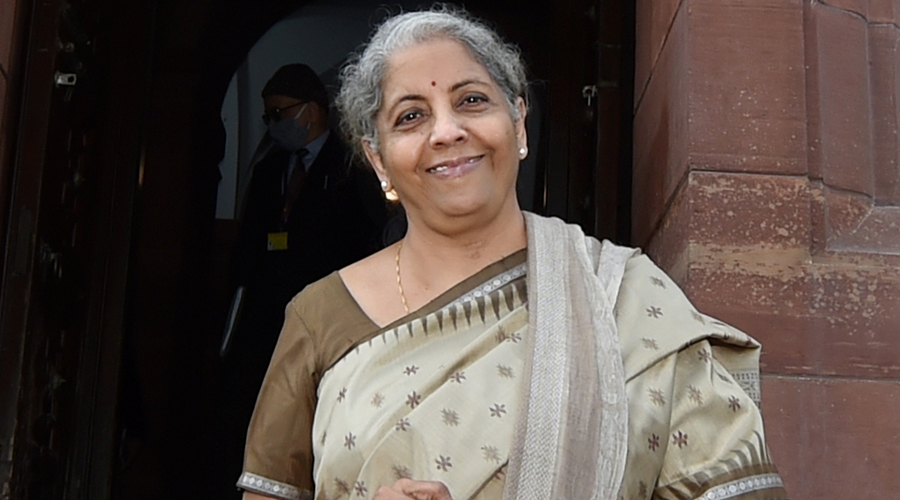In her budget speech, the Union finance minister talked about highway projects in the election-bound states of West Bengal, Kerala and Tamil Nadu for which Rs 25,000 crore, 65,000 crore and 1,03,000 crore, respectively have been announced. Taken together, these projects are worth Rs 1,90,000 crore. In comparison the budget allocation for the entire ministry of road transport and highways is just Rs 1,18,101 crore in 2021-22. Similarly, the Bengal government has also announced many huge flyovers all over Calcutta and a large network of roads and bridges all across the state. But the total allocation for the next financial year is only about Rs 3,000 crore. It is anybody’s guess how long it will take to complete all these projects.
The Union budget has also announced construction of three new dedicated freight corridor projects — for two of these work was initiated some 15 years back but only 50-60 per cent of it has been completed. The budget speech also indicates that work on the third has not yet started. This is not just a current trend. A government announces projects to suit its political priorities, but when the government changes, new projects are announced and old projects get little attention, but still some money is spent to keep those projects alive. Interestingly, in the railways sector, the oldest pending project is in West Bengal — the 109 km-long line between Howrah and Furfura Sharif announced in the rail budget of 1974-75.
According to the ministry of statistics and programme implementation, on December 31, 2020, there were 1,695 ongoing Central government projects costing Rs 150 crore or more. While more than Rs 12,00,000 crore has already been spent on them, more than 13,00,000 crore is needed to complete these provided there is no further cost escalation, which is unlikely. Before making new announcements, the government should have considered these funding commitments too. Railways and roads are the two sectors that have seen maximum delays and cost overruns as these sectors are also most affected by political populism.
Essentially, governments launch too many infrastructure projects without considering cost and time. Construction of many projects simultaneously involves substantial direct and indirect costs and reduced returns and life of these projects. Compare two scenarios — the government announces 15 projects in a year and takes 15 years to complete all of them. Alternatively, the government can announce one project a year and complete all of them in 15 years. The second scenario is much more beneficial. Now imagine a project of metro railways constructed on an elevated corridor. If the life of such a corridor is 50 years, and if such a railway takes 15 years to build, then the stretch that has been constructed in the first year will become unusable after 35 years after the project is completed. So the effective life of the project will become just 35 years instead of 50 years had the entire project been built in one year. Moreover, repairs will be needed even before the project is completed. This is one of the reasons why delayed projects experience cost escalations.
Another adverse consequence of starting too many projects at a time and delayed projects is that quality control suffers. Most such projects are constructed by private contractors under the supervision of some government department or agency, which have limited human resources for supervising a large number of construction activities spread over the whole country or state. The collapses of under-construction flyovers or newly constructed bridges are examples of such deficiency in supervision. One can see long stretches of metro tracks under construction in several parts of Calcutta. None knows when these will be completed. While the delay is partly due to difficulty in getting land, it is also owing to poor allocation of funds. But these constructions are causing great inconvenience in terms of traffic congestion, higher transport costs, longer time taken to travel, more pollution as well as a negative impact on economic activities.
There is a strong case for putting a brake on announcements of such projects which should be launched only after proper planning and not owing to political exigencies.











